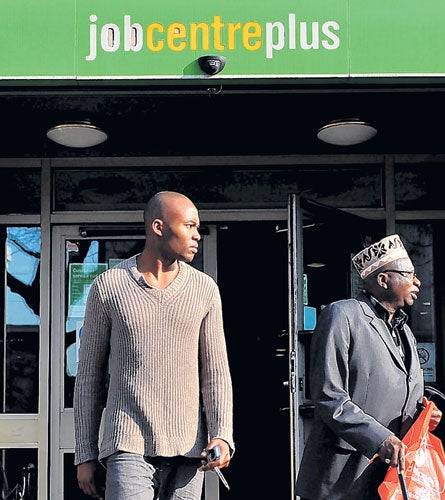Darling promises 'Budget about jobs'
Chancellor to unveil measures aimed at tackling rising youth unemployment

Your support helps us to tell the story
From reproductive rights to climate change to Big Tech, The Independent is on the ground when the story is developing. Whether it's investigating the financials of Elon Musk's pro-Trump PAC or producing our latest documentary, 'The A Word', which shines a light on the American women fighting for reproductive rights, we know how important it is to parse out the facts from the messaging.
At such a critical moment in US history, we need reporters on the ground. Your donation allows us to keep sending journalists to speak to both sides of the story.
The Independent is trusted by Americans across the entire political spectrum. And unlike many other quality news outlets, we choose not to lock Americans out of our reporting and analysis with paywalls. We believe quality journalism should be available to everyone, paid for by those who can afford it.
Your support makes all the difference.Measures to expand help for 18 to 24-year-old people who are at risk of long-term unemployment because of the recession will be announced in the Budget next week.
Youth unemployment stands at 621,000, or 14.6 per cent – its highest level for 15 years. The Prince of Wales's charity, the Princes Trust, estimates the real figure is much higher at 1.5 million because the jobless statistics do not include 16 to 18-year-olds or so-called "Neets" – young people not in employment, education or training schemes.
Experts say the New Deal, one of Gordon Brown's flagship policies, has been less effective for young people than for older workers and lone parents since its introduction in 1997. More intensive help, training and job placements for young people in return for their benefits are now planned.
Yesterday Mr Brown promised a "Budget about jobs" as Mr Darling gave the Cabinet a presentation on the economy when it met in Glasgow.
The Chancellor, who is still finalising his package, is expected to announce a huge increase in public borrowing after underestimating the length of the recession in his pre-Budget report last November. It could rise to more than £170bn next year, a post-war record.
Mr Darling is likely to unveil further tax rises from 2011 to reassure the financial markets that the nation's books will be balanced over the next seven or eight years. He will argue against immediate tax rises, saying they could prolong the downturn.
In November, he announced a 45p in the pound top rate of tax on incomes of more than £150,000 from the 2011-12 financial year and a 0.5 per cent rise in national insurance contributions by employees and employers. While he wants to boost his revenue to cover the higher borrowing, he believes that much of the gap will be bridged when the Treasury's tax receipts pick up as the economy grows again. He believes the recovery will start around the end of this year but acknowledges there is still uncertainty about the global economy.
Mr Darling will keep open the option of announcing further tax rises in his next pre-Budget report this autumn. He does not want to overcompensate by pencilling in a massive tax increase now.
The Chancellor is also expected to tighten the squeeze on public spending on the grounds that low inflation will allow government departments to produce more savings. All departments are under pressure but Treasury sources denied a claim by Oxfam that the overseas aid budget could be cut by up to £860m in the current financial year and up to £1.4bn in 2010–11. Max Lawson, Oxfam's senior policy adviser, said: "The Government should not use the economic recession and statistical sleight of hand as excuses to cut aid to poor countries at the very time when they need it most."
The Budget's main theme will be about "preparing for the recovery". A limited fiscal boost to keep the recession as short as possible will be targeted on measures to save jobs and ensure a "low-carbon economy" emerges from the downturn.
Lord Mandelson, the Business Secretary, was criticised by the Tories after telling people not to be "so darned pessimistic" about Britain's future. Speaking in Glasgow, he insisted there were still "plenty and plenty of opportunities".
Philip Hammond, the shadow Chief Treasury Secretary, said: "The world may look bright to Lord Mandelson, but for hardworking families facing rising unemployment, stagnant wages and shrinking credit, the contrast couldn't be more stark."
Join our commenting forum
Join thought-provoking conversations, follow other Independent readers and see their replies
Comments